#shorts history
Text
♡°•~°•~°•~°•~°~•~°•~°~°•~°•~°~•~°•~°•♡
Ey lambu te eh traído Moras!!- decía una criatura de aspecto diminuto- uhm? Lambu? - esta se para en medio del desolado bosque, no sentía,ni veía la presencia de su amigo llama- oh!si estás jugando nuevamente ya no quiero jugar, estoy super cansada- se quejaba levemente, entre los arbusto salió un gran llama, con lana blanca con pisca del amarillo pálido- donde estab-?- la pequeña, queda aterrada a ver a su gran amigo sonriendo pero su aspecto se lo veía tan maniático y sus ojos reflejaban maldad misma- que es lo que tienes, en tu boca ?..... es sangre ?

♡°•~°•~°•~°•~°~•~°•~°~°•~°•~°~•~°•~°•♡
2 notes
·
View notes
Text
In contrast with professional drag queens, who were only playing at being women onstage, [Esther] Newton learned that the very bottom of the gay social hierarchy was the province of street queens. In almost total contrast to professional queens, street queens were "the underclass of the gay world." Although they embraced effeminacy, too, they did so in the wrong place and for the wrong reason: in public and outside of professional work. As a result, Newton explained, the street queens "are never off stage. Their way of life is collective, illegal, and immediate." Because they didn't get paid to be feminine and were locked out of even the most menial of nightlife jobs, Newton observed that their lives were perceived to revolve around "confrontation, prostitution, and drug 'highs'." Even in a gay underworld where everyone was marked as deviant, it was the sincere street queens who tried to live as women who were punished most for what was celebrated-and paid-as an act onstage. When stage queens lost their jobs, they were often socially excluded like trans women. Newton explained that when she returned to Kansas City one night during her fieldwork, she learned that two poor queens she had met had recently lost their jobs as impersonators. Since then, they had become "indistinguishable from street fairies," growing out their hair long and wearing makeup in public-even "passing" as girls in certain situations," in addition to earning a reputation for taking pills. They were now treated harshly by everyone in the local scene. Most people wouldn't even speak to them in public. Professional drag queens who didn't live as women still had to avoid being seen as too "transy" in their style and demeanor. One professional queen that Newton interviewed explained why: it was dangerous to be transy because it reinforced the stigma of effeminacy without the safety of being onstage. "I think what you do in your bed is your business," he told Newton, echoing a middle-class understanding of gay privacy, "[but] what you do on the street is everybody's business."
The first street queen who appears in Mother Camp is named Lola, a young Black trans girl who is "becoming a woman,' as they say'." Newton met Lola at her dingy Kansas City apartment, where she lived with Tiger, a young gay man, and Godiva, a somewhat more respectable queen. What made Godiva more respectable than Lola wasn't just a lack of hormonal transition. It was that Godiva could work as a female impersonator because she wasn't trying to sincerely live as a woman. Lola, on the other hand, was permanently out of work because being Black and trans made her unhireable, including in female impersonation. When Newton entered their apartment, which had virtually no furniture, she found Lola lying on "a rumpled-up mattress on the floor" and entertaining three "very rough-looking young men." These kinds of apartments, wrote Newton, "are not 'homes.' They are places to come in off the street." The extremely poor trans women who lived as street queens, like Lola, "literally live outside the law," Newton explained. Violence and assault were their everyday experiences, drugs were omnipresent, and sex work was about the only work they could do. Even if they didn't have "homes," street queens "do live in the police system."
As a result of being policed and ostracized by their own gay peers, Newton felt that street queens were "dedicated to "staying out of it" as a way of life. "From their perspective, all of respectable society seems square, distant, and hypocritical. From their 'place' at the very bottom of the moral and status structure, they are in a strategic position to experience the numerous discrepancies between the ideals of American culture and the realities." Yet, however withdrawn or strung out they were perceived to be, the street queens were hardly afraid to act. On the contrary, they were regarded by many as the bravest and most combative in the gay world. In the summer of 1966, street queens in San Francisco fought back at Compton's Cafeteria, an all-night venue popular with sex workers and other poor gay people. After management had called the police on a table that was hanging out for hours ordering nothing but coffee, an officer grabbed the arm of one street queen. As the historian Susan Stryker recounts, that queen threw her coffee in the police officer's face, "and a melee erupted." As the queens led the patrons in throwing everything on their tables at the cops-who called for backup-a full-blown riot erupted onto the street. The queens beat the police with their purses "and kicked them with their high-heeled shoes." A similar incident was documented in 1959, when drag queens fought back against the police at Cooper's Donuts in Los Angeles by throwing donuts-and punches. How many more, unrecorded, times street queens fought back is anyone's guess. The most famous event came in 1969, when street queens led the Stonewall rebellion in New York City. Newton shares in Mother Camp that she wasn't surprised to learn it was the street queens who carried Stonewall. "Street fairies," she wrote, "have nothing to lose."
Jules Gill-Peterson, A Short History of Trans Misogyny
4K notes
·
View notes
Text
Tarih ’e Geçen Sözler #3
#tiktok#tarih youtube#metehan#youtube shorts#shorts history#history clips#instagram#facebook#viral#reels#keşfet#tarih
1 note
·
View note
Text
for a while i lived in an old house; the kind u.s americans don't often get to live in - living in a really old house here is super expensive. i found out right before i moved out that the house was actually so old that it features in a poem by emily dickinson.
i liked that there were footprints in front of the sink, worn into the hardwood. there were handprints on some of the handrails. we'd find secret marks from other tenants, little hints someone else had lived and died there. and yeah, there was a lot wrong with the house. there are a lot of DIY skills you learn when you are a grad student that cannot afford to pay someone else to do-it-for-ya. i shared the house with 8 others. the house always had this noise to it. sometimes that noise was really fucking awful.
in the mornings though, the sun would slant in thick amber skiens through the windows, and i'd be the first one up. i'd shuffle around, get showered in this tub that was trying to exit through the floor, get my clothes on. i would usually creep around in the kitchen until it was time to start waking everyone else up - some of them required multiple rounds of polite hey man we gotta go knocks. and it felt... outside of time. a loud kind of quiet.
the ghosts of the house always felt like they were humming in a melody just out of reach. i know people say that the witching hour happens in the dark, but i always felt like it occurred somewhere around 6:45 in the morning. like - for literal centuries, somebody stood here and did the dishes. for literal centuries, somebody else has been looking out the window to this tree in our garden. for literal centuries, people have been stubbing their toes and cracking their backs and complaining about the weather. something about that was so... strangely lovely.
i have to be honest. i'm not a history aficionado. i know, i know; it's tragic of me. i usually respond to "this thing is super old" by being like, wow! cool! and moving on. but this house was the first time i felt like the past was standing there. like it was breathing. like someone else was drying their hands with me. playing chess on the sofa. adding honey to their tea.
i grew up in an old town. like, literally, a few miles off of walden pond (as in of the walden). (also, relatedly, don't swim in walden, it's so unbelievably dirty). but my family didn't have "old house" kind of money. we had a barely-standing house from the 70's. history existed kind of... parallel to me. you had to go somewhere to be in history. your school would pack you up on a bus and take you to some "ye olden times" place and you'd see how they used to make glass or whatever, and then you'd go home to your LEDs. most museums were small and closed before 5. you knew history was, like, somewhere, but the only thing that was open was the mcdonalds and the mall.
i remember one of my seventh grade history teachers telling us - some day you'll see how long we've been human for and that thing has been puzzling me. i know the scientific number, technically.
the house had these little scars of use. my floors didn't actually touch the walls; i had to fill them with a stopgap to stop the wind. other people had shoved rags and pieces of newspaper. i know i've lost rings and earring backs down some of the floorboards. i think the raccoons that lived in our basement probably have collected a small fortune over the years. i complain out loud to myself about how awful the stairs are (uneven, steep, evil, turning, hard to get down while holding anything) and know - someone else has said this exact same thing.
when i was packing up to leave and doing a final deep cleaning, i found a note carved in the furthest corner in the narrow cave of my closet. a child's scrawled name, a faded paint handprint, the scrangly numbers: 1857.
we've been human for a long time. way back before we can remember.
#idk if it's still tradition but the kids at the local school next to walden when I went there#used to have a tradition where u had to pee in walden pond before u graduated or otherwise you'd fail one of your classes#as someone who did not do this im happy to report i did fail a class so maybe they had a point#they've torn the school down tho so who knows#i hope this makes sense#i think we've been human longer than we've been writing#ps this land was taken over by hostile combatants and colonialized . let us not forget that part of the reason#our 'history' is so short. is that we have systematically slaughtered the people who had history here before
8K notes
·
View notes
Text
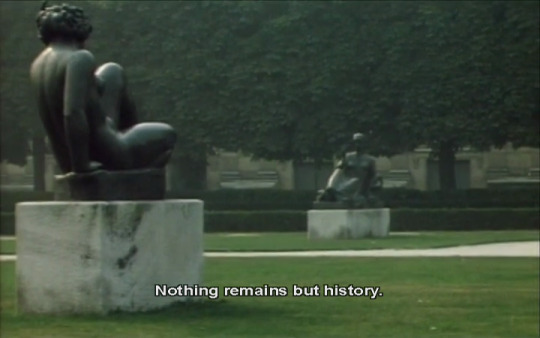
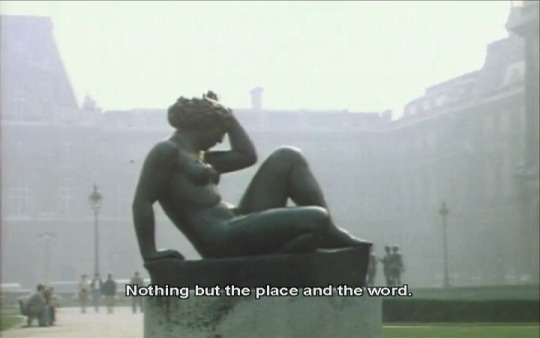
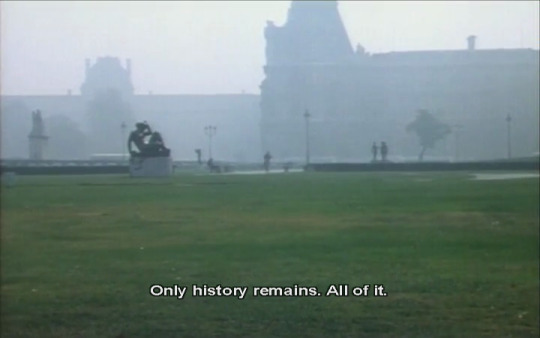
Césarée (Marguerite Duras, 1978)
#Cesarée#Marguerite Duras#Duras#Cesaree#1978#Césarée#short film#quote#history#nothing#art#sculpture#past#time
2K notes
·
View notes
Text
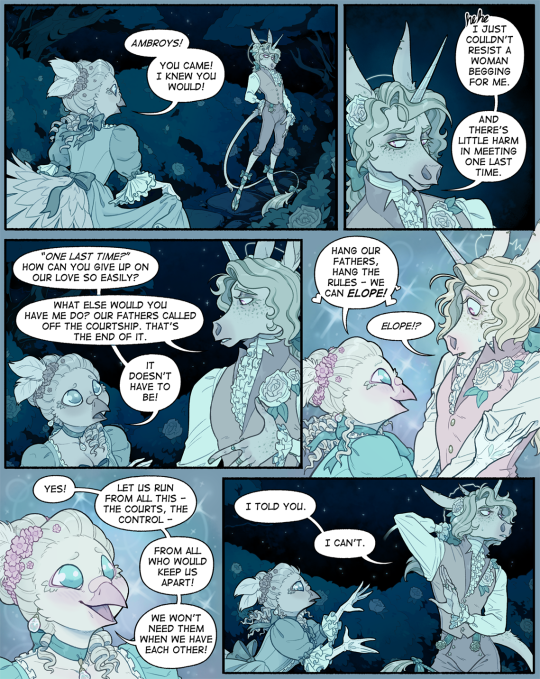
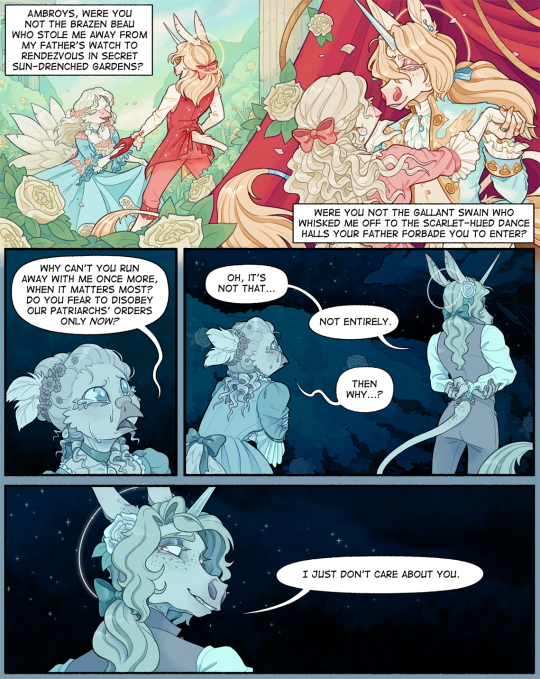
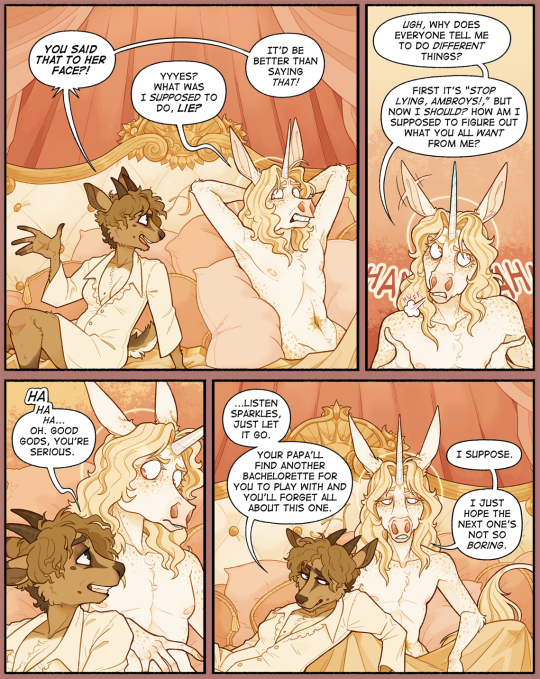
As an eligible young noble of no small fame, Ambroys had a number of arranged courtships and suitresses in his youth, but any nascent marriages always fell through.
It's not that he didn't try; he certainly knew how to court a lady (perhaps too well, according to many fathers and husbands), and when he lacked knowledge on the affairs of womens' hearts, he sought counsel from a young woman who was a dear friend of his (perhaps too much counsel, according to his own father). Nonetheless, all he garnered for his efforts was separation after separation.
Ah, well. Maybe it was for the best.
#been working on this for a while... was just struck by the fact that I don't have much showing Ambroys' character in his “normal” “everyday”#so I wanted to do something “short” and “quick” to try to highlight some of his... quirks#and to contrast the loverman persona I think he's garnered#like yeah he's good at romance but also he's so fucking bad at it#just like he's good and bad at everything to do with interacting with people really#no matter how well you mimic dance steps it doesn't count for much when you don't know what the music is#or something like that...#also wanted to draw Lou (the goat) his girl best friend (with benefits)#who is actually quite important to him and his history but who I haven't drawn actually speaking or having a face yet#comics#my draws#amaranthine#ambroys#anthro#fantasy#unicorn#etc
757 notes
·
View notes
Text
People don't realize how liminal it is to be a time traveler. How you don't ever really feel like you're in the time you are. Even when you're in your own time, everything is off, your coat was something you bought in interwar France, the book you're reading on the train is from a bookstore you had to visit in Victorian London, even your necklace was given to you by a Neolithic shaman, from a culture the rest of the world can never know. You find yourself acting strange even when in the present, much less in the past you have to work in.
You remember meeting a eunuch in 10th century China, and having him be one of the only people smart and observant enough to realize you were from a diffrent time. You could talk honestly with him, though still you couldn't reveal too much about your time. And it was still so strange hearing him talk casually about work and mention plotting assassinations. You're not allowed to but you still visit him sometimes.
You remember that the few times you were allowed to tell someone everything it was tragic. You knew a young woman who lived in Pompeii, who you had gotten close to, a few days before she would inevitably die. On your last day there you looked into her eyes, knowing soon they'd be stone and ash, that the beauty of her hair would be washed away by burning magma. And you hugged her, and told her that you wanted her to be safe, and told her she was wonderful and that you wanted her to be comfortable and happy. And you let her tongue know the joy of 21st century chocolate, and her eyes see the beauty of animation, knowing she deserved to have those joys, knowing it wouldn't matter soon. And you hugged her the last time, and told her she deserved happiness. And when you left without taking her it was like you were killing her yourself.
You want to take home everyone you're attached to. There's a college student you befriended in eighteen fifties Boston. And you can't help but see him try to solve problems you know humanity is centuries away from solving. And you just want to tell him. And it's not just that, the way he talked about the books and plays he likes, his sense of humor. There's so many people you want him to meet.
You feel the same way about a young woman you met on a viking age longship. She tells stories to her fellow warriors and traders, stories that will never fully get written down, stories that she tells so uniquely and so well. She has so many great ideas. You want so dearly to take her to somewhere she can share her stories, or where she can take classes with other writers, where she can be somewhere safe instead of being out at sea. She'll talk about wanting to be able to do something, or meet people, and you know you're so close to being able to take her, but you never can, unless she accidently finds out way too much then you can't.
You remember the longship that you met that young storyteller on. You were there before, two years ago for you, ten years later for the people on it. The young woman who told you stories wasn't there ten years later, you had been told why then but you only realize now, her uncle, who ran the ship, had been one of the first people to convert to Christianity in his nation. He killed her, either for not converting or for sleeping with women, you're not sure, but he killed her, and bragged about it when you met him ten years later.
You talk to the storyteller on the longship, ask her about the myths you're there to ask her about, the myths that she loves to tell. You look into her eyes knowing it's probably less then a year until her uncle takes her life. You ask her if you think that those who die of murder go to Valhalla. She tells you she hopes not, she doesn't see Valhalla as a gift but as a duty, she hopes for herself to go to Hel, where she wouldn't have to fight anymore. You slip and admit you're talking about her, telling her that you hope that's where she goes when she's killed. You hope to yourself you'll be forced to take her to the twenty first century, you're tempted even to make it worse, you want to have ruined her enough to be able to save her.
#196#my thougts#worldbuilding#writing#my worldbuilding#my writing#urban fantasy#ancient history#history#short fiction#short story#original fiction#flash fiction#viking#viking age#norse mythology#ancient rome#pompeii#science fantasy#science fiction#sci fi#scifi#queer#queer history
482 notes
·
View notes
Text
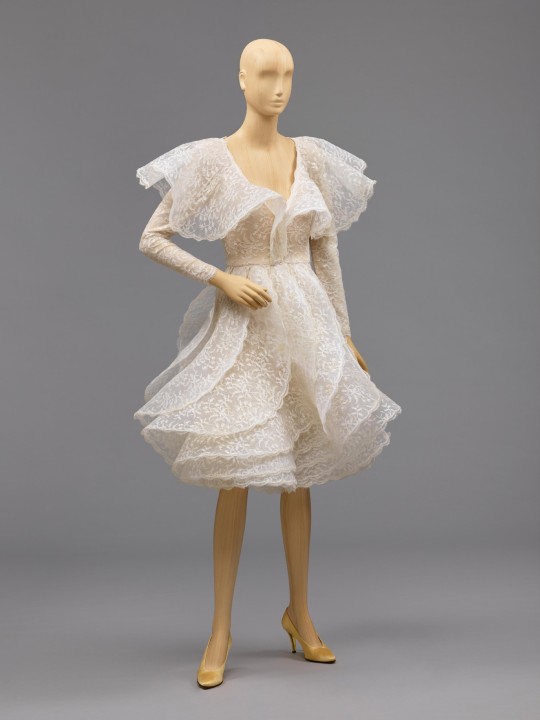
• Woman's Short Evening Dress.
Date: ca. 1987
Designer/Maker: Pierre Cardin (French (born Italy), 1922–2020)
Medium: Nylon lace over nylon horsehair.
#fashion history#history of fashion#dress#fashion#vintage clothing#vintage fashion#vintage#vintage dress#1980's fashion#1980's dress#1980's#short evening dress#pierre cardin#ca. 1987
644 notes
·
View notes
Text
Tolkien in the 30s: the elves have beautiful long hair regardless of gender even tho a man having long hair in the 30s would be seen as an egregious sign of gender noncomformity at best
Amazon rn: boy elves have short hair girl elves have long hair because this adaptation is about girlboss galadriel
#lotr#rings of power#That is not to even touch on the missing bearded lady dwarfs#Not to be a Tolkien purist but if the man spends thousand of words describing the practices and cultures and food and history of a setting#Maybe#That has something to say#Maybe the curtains are blue for a reason#Maybe the elves have long hair for REASON and taking that away for???? Literally nothing is shit#Like what is rop saying with its short hair elves??? Nothing they are saying nothing
9K notes
·
View notes
Text
Have you ever wanted to find your old Ao3 comments? Easily keep track of which (and how many) fics you've commented on? Rediscover a fic that you left a time capsule of a gushing essay on?
Well, you can! And it's simple!
(* Note: it only works for comments written after you turn this on.)
Go to your Preferences:

There's a checkbox labelled "Turn off copies of your own comments". This is selected by default. If you deselect it (and save your preferences) then you receive an email for every comment you leave.


But I don't want to get my inbox flooded by Ao3!
Understandable! Luckily, most email clients allow you to set up rules for incoming mail depending on their sender and contents. For instance (using Gmail), I've made it so that these emails skip the inbox, are marked as read, and moved to a label I call my "Comment Collection".

The result? A complete, organised and fully-searchable repository of any comments you leave from this point onwards! Search by fic name, author, date, that one sentence you vividly remember leaving!

I've set up other rules, too, like starring emails that are replies to my comments - I'm always excited to receive them!
I love this system, and I think it's motivated me to leave more comments. I hope that others find it useful too. Happy commenting!
Original preferences trick from this Reddit thread. Tagging @justleaveacommentfest, which motivated me to write this post!
#archive of our own#ao3#fanfiction#fanfic#reference#comment comment comment guys! short or long! it's fun for you AND the authors!#i only set this up like three months ago and it's already paying off#for my older reading history i only have the comments that authors have replied to#also i wrote out this post like three times pressed CTRL-Z or something and nuked the entire thing. whoops that's why you use drafts#just leave a comment fest#// tikposting
1K notes
·
View notes
Text

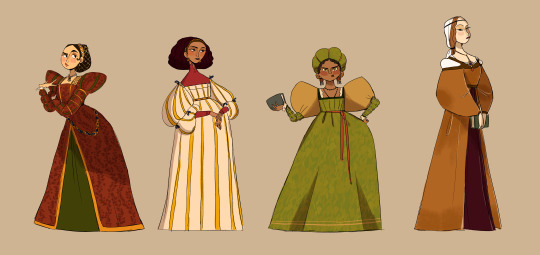
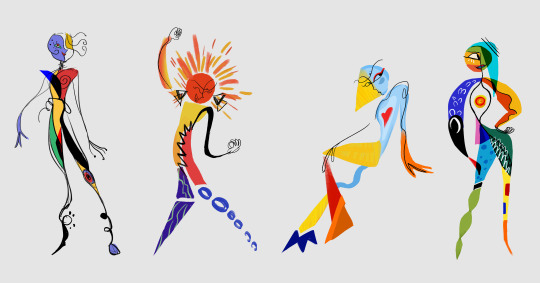
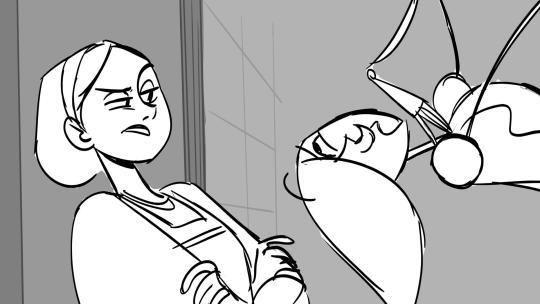
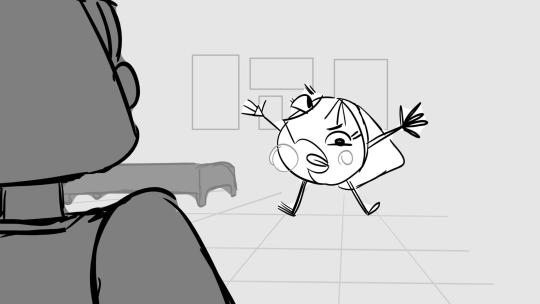

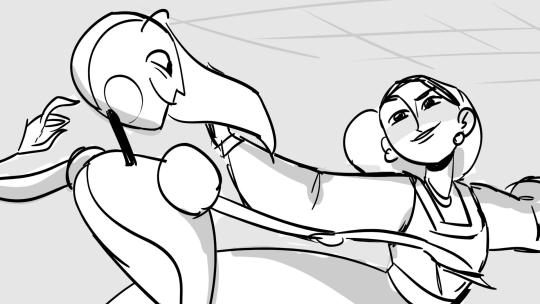

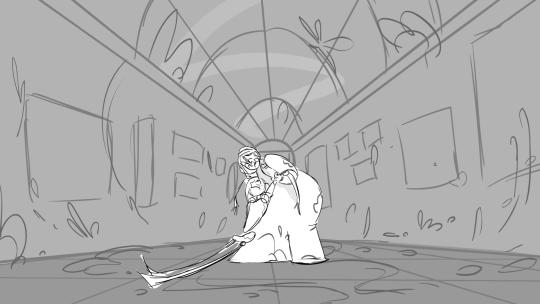
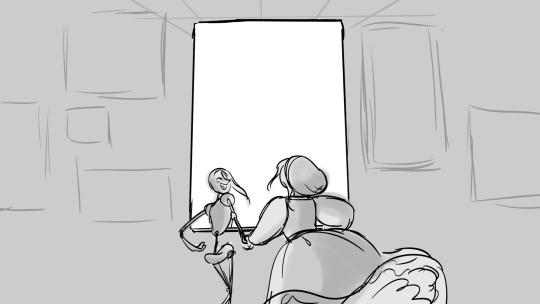
So I got the opportunity last month to make a pitch for a short animated film! So I decided to tell the tale of two paintings in a art museum who get into a fight but ultimately fall in love and decide to hop into a frame together. Unfortunately it wasn't chosen in the end but I am planning to do something with this story in the near future!
#animated short#animation#art#art history#character design#storyboards#painting#sapphic#compeltely normal sapphic behaviour#abstract#renassaince#development
263 notes
·
View notes
Text
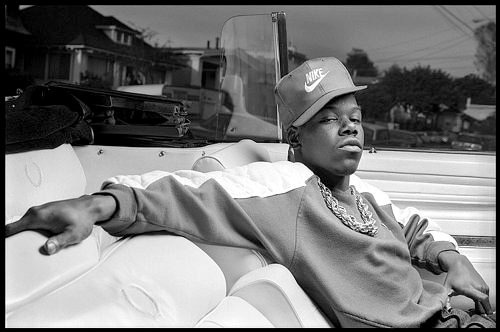
Today in Hip Hop History:
Too $hort was born April 28, 1966
#today in hip hop history#todayinhiphophistory#hiphop#hip-hop#hip hop#hip hop music#hip hop history#history#music#hip hop culture#music history#too short#too $hort#bornday#birthday#emcee#mc#rap#rapper#1966
214 notes
·
View notes
Photo

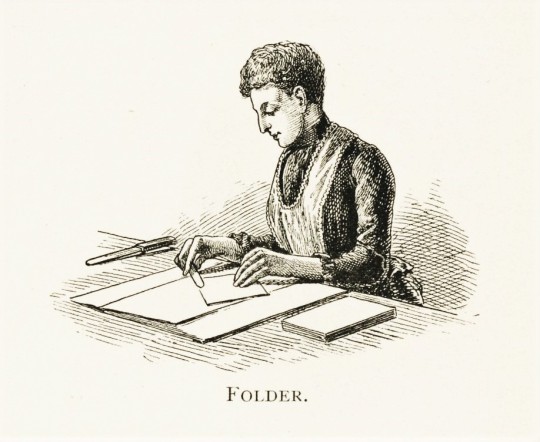



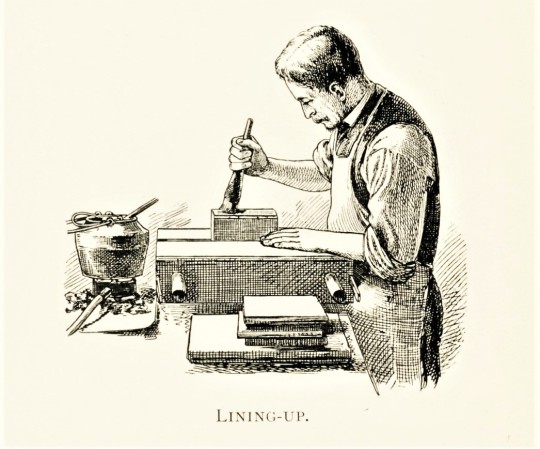




Wood Engraving Wednesday
Here are a few delightful wood engravings from a recent gift showing the various processes that go into binding a book. This little pamphlet is entitled A Short History of Bookbinding and a Glossary of Styles and Terms Used in Binding . . . .printed in London at the Chiswick Press for the bookbinder Joseph William Zaehnsdorf in 1895.These images were probably printed from metal plates that were made from the original wood engravings. The engravings are not attributed, as was the case for most commercial engravings.
Click or tap on the images to see the definitions for these activities as provided in the booklet’s glossary.
View more posts with wood engravings!
#Wood Engraving Wednesday#wood engravings#commercial wood engravings#A Short History of Bookbinding#bookbinding#Chiswick Press#Joseph William Zaehnsdorf
2K notes
·
View notes
Text
do you ever just remember that the most “masculine”/boy-centric episode of ML was about all the boys in paris getting together and kissing each other and throwing rainbow confetti in the air and dancing to the Village People
#every time i remember party crasher i feel like my brain short circuits#miraculous ladybug: love wins#literally the only episode where adrien hangs out w a group of boys and it's the gayest party in the history of parties#adrien got kissed by nathaniel and marc... the two heavily implied/basically canon gay guys??? hello????????#adrien bi awakening party where he's kissed by a bunch of boys and sighs dreamily ''this would be even better if marinette were here''
6K notes
·
View notes
Note
sorry if you've already answered this but i just read your post about whipping girl and found it so so so insightful!! i was wondering if you have any other recommendations for books/articles/etc. about transmisogyny and the lives of tma people. thank you in advance!!
I'm glad it was helpful! this is the second ask on the subject I've let pile up, because I want to do my best with it but I'm also far from an expert. I think half the work of answering "transmisogyny syllabus" questions is explaining why it's so hard to do so in the first place.
one of the tools of hegemony is the epistemic violence it works against its subjects; this is essential to transmisogyny, thru which we have historically been rendered unable to so much as record our existence, let alone theorize from it. it is incredibly difficult for a tma person to access the institutional devices of knowledge-making, most of all the university. even when we do it is typically for the institutions we work under to shoehorn our work into the hegemonic model, stymieing actual progress. so theories and histories of transmisogyny have had to progress in a patchwork, often informal fashion, upstream and at personal risk. I am not going to be able to give you books that I would recommend without criticism, because the epistemic violence of transmisogyny has made it virtually impossible to write such a book. but with that said, here are some recommendations:
- this post multiplied my understanding of transmisogyny manifold, and was one of the most clarifying things I've read on the subject
- hands off our lives, our stories, and our bodies, is imo essential to anyone interested in a theory of transmisogyny that actually engages with its manifestations in the global south
- I enjoyed My Words to Victor Frankenstein above the Village of Chamounix: Performing Transgender Rage by Susan Stryker for the vibes
- two historical excavations of transmisogyny: Trans Misogyny in the Colonial Archive: Re-Membering Trans Feminine Life and Death in New Spain, 1604–1821 by Jamey Jesperson and ‘Selective Historians’: The Construction of Cisness in Byzantine and Byzantinist Texts by Ilya Maude
- Romancing the Transgender Native is good for learning the trappings of ahistorical and idealist "third gender" attributions
- especially (but not exclusively) if you are yourself a trans woman/transfem/tma, consider reading fiction by trans women/tma people, like Serious Weakness by Porpentine Charity Heartscape (check tws) or LOTE by Shola von Reinhold
- Jules Gill-Peterson's A Short History of Trans Misogyny is great for some case studies in global transmisogyny, and a decent materialist approach. but I think she makes the same mistake serano made re: equivocation of transmisogyny with the oppression of femininity, and she would have done well to read the second article on this list. her histories of the transgender child is also good, though not especially focussed on transmisogyny
- follow @ bloomfilters on twitter
if this looks like a hodgepodge that's because it is on account of what I said in the first two paragraphs. I am really not an expert and I am sure there are others who could give you much more. but to echo a friend, you may be just as likely to get something out of a game or a song written by a tma person as you are an essay. every medium can be an opportunity to plunge the roots of our theorizing deeper.
#ask answer#transmisogyny#just finished a short history today maybe i will post a short review at some point#when my makes you sleepy meds stop making me sleepy
280 notes
·
View notes
Note
If it's not too much trouble would you mind sharing more on your thoughts about AJ? Esp the line she shouted at Rarity and her "struggle with sexual identity" I'm kind of new so I would like to hear more! Does Rarity also struggle with sexual identity and fearing AJ would leave? I love the family oriented person A and the business inclined and impressed by shiny new things person B trope
Ok, this is gonna get into head canons and personal opinions.
The writing in Rollercoaster of Friendship (and EQG as a whole) is much simpler and more stripped down in comparison to FiM (most likely to appeal to a younger audience; don't want to seem like I'm dissing the writers), but that one confrontation made me sit up in my seat because it carries the entire special.
More under the cut cuz I don't want MLP analyses clogging up my blog.
For one, we've seen AJ get frustrated and angry about the same exact conflict over a girl in FiM (Rara), establishing a pattern. And even though she's right (her friend really is being manipulated), I read both cases as her acting out in jealousy too. Here's this girl who she's felt a unique attachment to being "taken away" and changed by someone new. This is most apparent in RoF; the moment Vignette introduces herself, kisses Rarity on both cheeks, and establishes herself as Rarity's "new best friend," AJ immediately reacts with shock, betrayal, and boldfaced jealousy (made even worse when Rarity forgets her during introductions). Although AJ acts independent, she's actually very emotionally dependent on certain people in her life.
If we come into this with the assumption that AJ has romantic feelings for Rarity –– which is a normal assumption given the director/writer confirmed the special was written as a romantic drama between the two –– AJ's line is all the more heartbreaking. If I may slip into fictional speculation: your crush is no longer listening or paying attention to you, even though you know something is wrong and that she's getting hurt. Your frustration at her lack of awareness is really your anger at her lack of care –– she doesn't care about you anymore. So in a fit of rage, in your big, dramatic confrontation, just to make her look at you, react at you, feel how she's been making you feel all day –– unwanted and unspecial –– you hurt her back. AJ yells, "You're not special!" and Rarity cries.
And what really gets me is that AJ lies. In this moment, she lies that Rarity's not special when (again, assumption of romance) she's the most special person in the world to her. So special that she's placed all her feelings of self-assurance and security on their relationship. So special that the moment their relationship is shaken and she doesn't know to recover it –– recover herself –– she lashes out, acts against her character, and says something dishonest just to hurt the girl she loves.
(Honestly, rewatching this special, AJ is so insecure and attention-needy. The way she pouts and slouches and lags behind the group and says, "Never mind. It's nothing," when asked what's wrong is textbook "please pay attention to me and ask me what's wrong because i need a reason to be honest about feelings i know i should be ashamed of" behavior.)
I think AJ's insecurities (which could be tied to her lack of experience with romantic relationships) reveal how she has a tendency to misattribute and redirect anger onto the person she cares most about (see Simple Ways as well, where she's caught on the opposite end of a jealousy spat). This could easily become a very toxic trait, but AJ grows past it. Near the end of RoF, the two come together and apologize. AJ recognizes her entitlement and confesses her insecurities about their relationship. She felt hurt and attacked when her status as Rarity's best friend/girlfriend was threatened because it's a role she uses to self-identify –– if Rarity isn't hers, she loses part of her identity. And she admits that she thought her motivation was to protect Rarity, but really she was just being selfish and protecting herself. Rarity was busy and stressed and needed someone to lean on just as much AJ needed her. She isn't AJ's emotional support girlfriend, and it wasn't right to expect her to be one.
(Which is why Rarijack is peak because throughout both series, they repeatedly show just how important honesty, open communication, and trust is in maintaining, supporting, and growing a romantic relationship.)
#i got a tag on my post yesterday speculating that i'm an english major#i'm not but i do write a lot of papers on art history and analysis for school so you're not too far off!#i just finished a short 6-pager analyzing a single page from a 1940 superman comic#ask me#anon#not including analysis on rarity cuz this post is way too long. another time.
245 notes
·
View notes